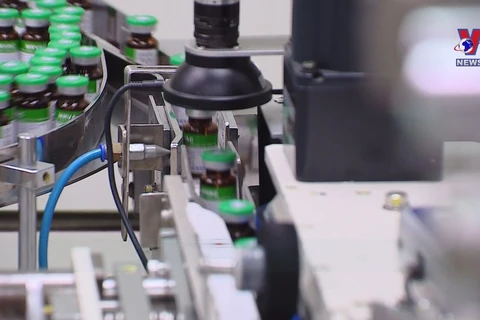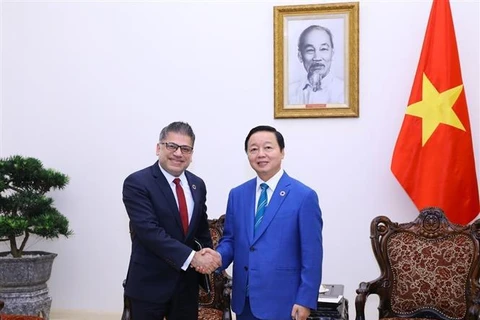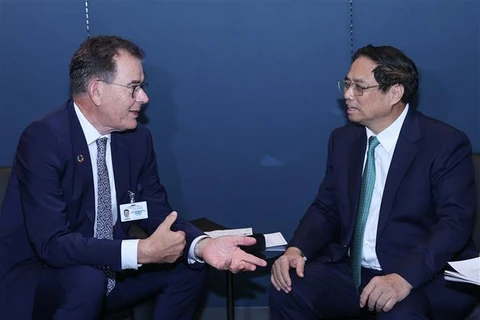 The EPI, launched in 1985, is providing immunisation to more than 10 vaccine preventable diseases. (Photo: VNA)
The EPI, launched in 1985, is providing immunisation to more than 10 vaccine preventable diseases. (Photo: VNA) Deputy Minister Nguyen Thi Lien Huong noted that the EPI, launched in 1985, is providing immunisation to more than 10 vaccine preventable diseases.
Over the past time, the ministry has drastically directed agencies and localities, and coordinated with relevant ministries and agencies to step up activities to ensure vaccines for the programme, she added.
For the 10 types of vaccines that can be produced domestically, the ministry has reviewed legal regulations and make purchase orders, she said, adding that a specific price plan is expected to be completed within this month.
The ministry has also assigned the National Institute of Hygiene and Epidemiology to sign contracts with vaccine producers and distribute vaccines to localities, according to the official.
For the 5-in-1 vaccine that must be imported, the ministry has assigned the institute to carry out procurement in the form of open domestic bidding in line with the Bidding Law.
While waiting for the procurement procedures to be completed, it sought vaccine donations from both international and domestic organisations, she said, noting that in late August, with the funding from the World Health Organisation (WHO), the United Nations Children's Fund (UNICEF) and other organisations, 258,000 doses of the vaccine arrived in Vietnam, and have been allocated to localities.
The Australian government will provide Vietnam with 490,600 doses of such vaccine, and they are scheduled to arrive in the Southeast Asian nation this month, the official continued.
Apart from instructing relevant units to promptly set out vaccine supply plans for 2024, the ministry is coordinating with ministries and agencies in amending the Government’s Decree No. 104/2016/ND-CP dated July 1, 2016 regulating vaccination activities, allowing the central budget to be earmarked to vaccine purchase in service of the EPI, Huong said./.
VNA






















